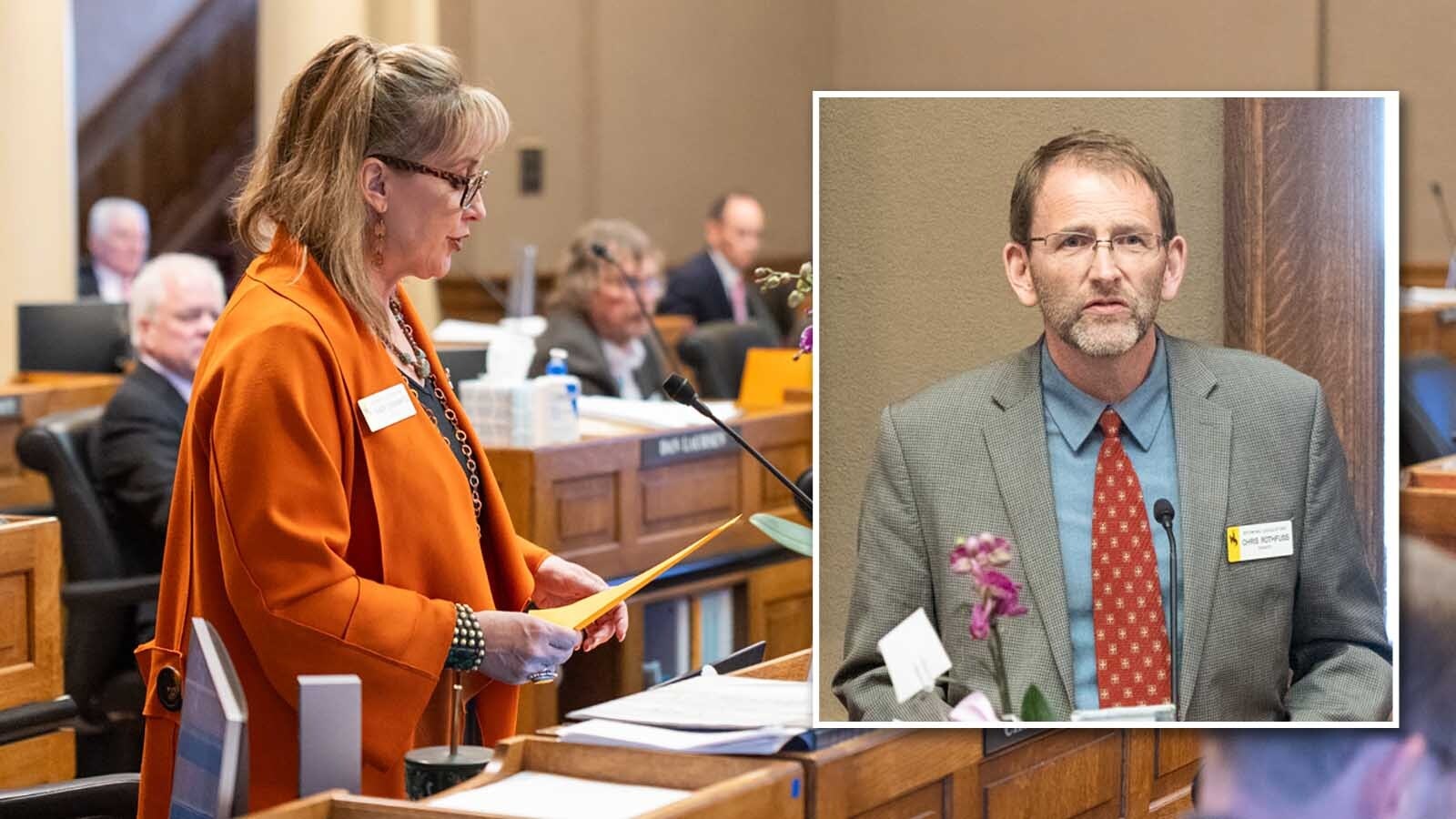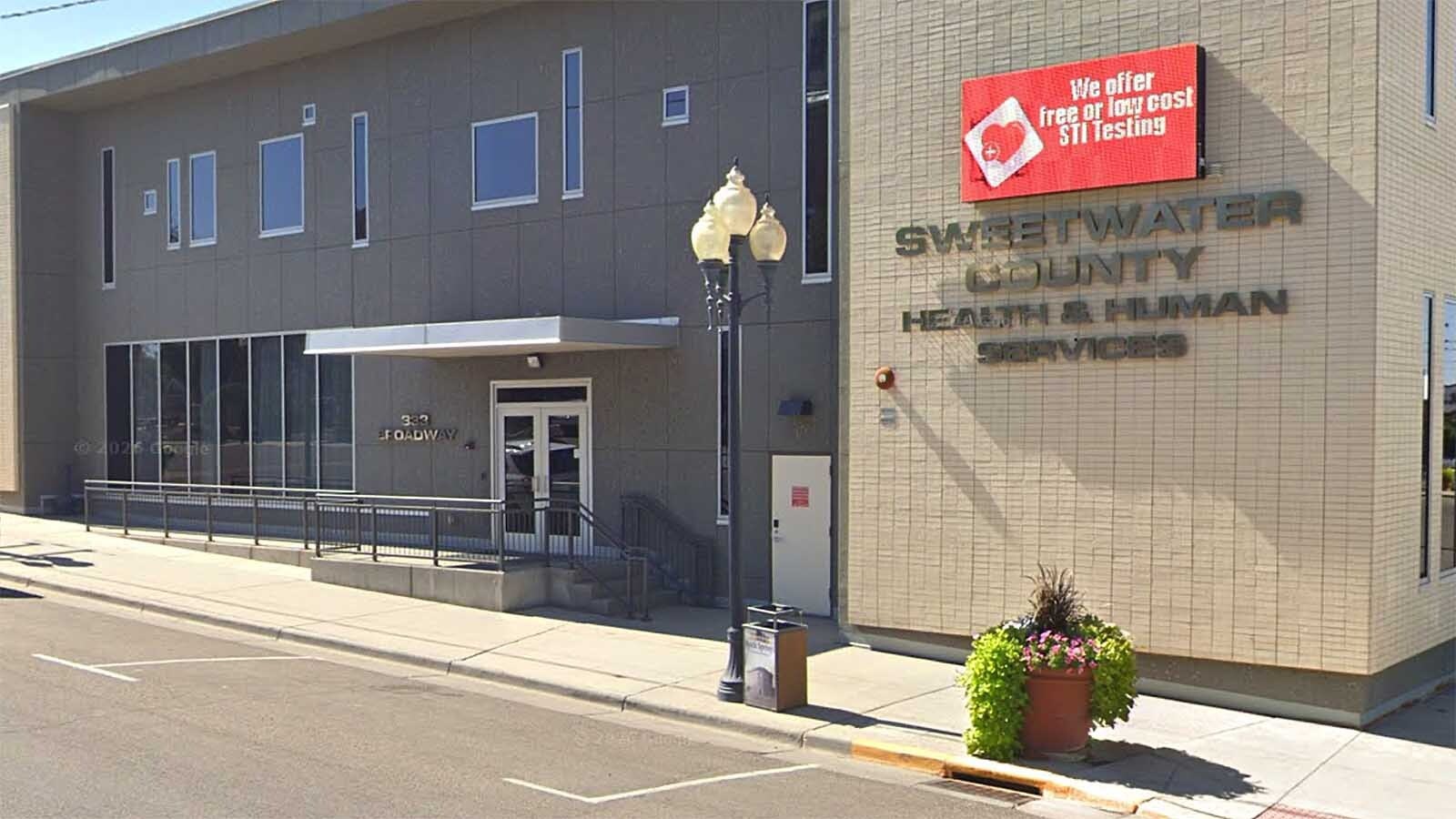A bill that would significantly alter the way abortions are performed in Wyoming advanced through a state House committee on Wednesday.
House Bill 64, legislation sponsored by House Speaker Chip Neiman, R-Hulett, would require all women planning on getting a prescription-induced abortion in Wyoming — also known as the abortion pill — to have an ultrasound no less than 48 hours beforehand.
Despite numerous people testifying against the bill, HB 64 easily passed the committee on a 7-1 vote, with only state Rep. Mike Yin, D-Jackson, voting against it.
What It Does
Neiman’s bill would put an ultrasound requirement for all women before they receive a prescription-induced abortion in Wyoming, and that it happen no less than 48 hours before getting a prescription for the abortion pill. The bill would have no impact on surgical abortions.
Because abortion is still legal in Wyoming, Neiman, who is staunchly pro-life, sees his “compassionate” bill as managing the practice better.
“Sadly, if this (abortion) is going to happen, at the very least, I think we should protect the women that are subjecting themselves to this,” Neiman told the committee.
Neiman sees Wyoming as lacking regulation for prescription-induced abortions.
“I just believe that we need to pump the brakes, let these folks have a chance to make sure of knowing where that fetus is located, if it is of correct gestational age,” he said.
The U.S. Food and Drug Administration (FDA) approves mifepristone for use up to 10 weeks into a pregnancy. Neiman said the core purpose of his bill is to ensure a fetus is viable to be quickly aborted and their exact size and weight, features that are difficult to ascertain without receiving an ultrasound.
“Why would we not verify the age of that baby before we would take these drugs or allow them to be ingested?” he questioned.
But Neiman also said he hopes his bill motivates fewer women to have abortions, describing it as “a chance to be able to feel that heartbeat and know that little person is real.”
Many ultrasounds women undergo before they reach 10-12 weeks’ gestation are transvaginal, which involves inserting the top of a long, thin device coated in a sheath and gel into the vagina.
Sarah Courtright, a Cheyenne counseling psychologist who opposes the bill, said getting an abortion can be a traumatizing experience that would be made even more damaging for the mother by requiring an ultrasound.
“If you are allowing women to more safely and effectively support their bodies, that is the key,” she said. “If you are engaging in something that is really a mental manipulation, and also traumatizing, that’s damaging.”
Some like Rep. Joel Guggenmos, R-Riverton, cited the fact that the FDA had received 36 reports of deaths associated with mifepristone as of the end of 2024.
Rene Hinkle, a Cheyenne OB/GYN, countered and said the number of women dying in labor has increased nationally since Roe v. Wade was overturned in 2022.
“Mandating government overreach to make a state law to say ultrasound is required by people who are not medical professionals is overreach and is not necessary,” Hinkle said.
The bill comes with an associated felony charge, carrying up to five years in prison and as much as $20,000 in fines for those who violate it.
Wellspring
Katie Knutter, executive director of the Wellspring Health Access Clinic in Casper, spoke against the bill, describing it as a hurdle for women seeking abortions.
Knutter said the 48-hour requirement on the bill could also push women into having surgical abortions because of the delay in getting services.
“Furthermore, the requirement of a waiting period after a forced ultrasound demeans women’s decision-making capability,” she said.
Most abortions in Wyoming are facilitated by the taking of a pill rather than surgical means. Abortion prescriptions are often sent through the mail, but they don’t have to be procured this way.
Wellspring is the only facility in Wyoming that provides both medication and surgical abortions. Another facility in Jackson only provides medication.
Every week, former state legislator Jeanette Ward and others protest outside Wellspring. She gave contentious testimony in support of Neiman’s bill Wednesday, describing the Republican Party as being pro-life and the Democratic Party pro-death.
“Abortion is not health care, it’s death care,” Ward said.
Former legislator Bob Brechtel said Natrona County has become “the abortion destination” for other states in the region because of Wellspring. He supports HB 64 and believes if an ultrasound was required, 80% of women considering an abortion would not go through with it.
Ross Schriftman, a pro-life advocate and president of Natrona County chapter of Right to Life, said women must be protected from the “harm” of having an abortion, while Bondurant resident Bill Winney said the ultrasound requirement would make women not get abortions as casually.
Hypocritical?
A number of people who testified against the bill described it as government overreach and an intrusion into private health care decisions.
Emma Laurent of pro-choice group Wyoming United For Freedom said the bill represents treating women like “second-class citizens” and is hypocritical when considering the Labor Committee advanced legislation Monday prohibiting mask and vaccine requirements in Wyoming.
That bill would let people sue any publicly funded business or agency for requiring them to wear a mask, be tested or get vaccinated for COVID-19.
Yin also brought up another bill considered right before HB 64 that would clarify that Wyoming law allows people to donate their own blood for personal future use.
“We’re going to put people in jail and force a medical procedure on women,” Yin said. “I think that is the antithesis when we talk about freedom in Wyoming.”
Casper resident Brit Borill expressed concern that attaching a criminal element to the bill could increase health care costs across the board for all services.
In 2017, then-state Rep. Chuck Gray passed legislation requiring physicians to inform women getting an abortion about the option of having an ultrasound, but it has no enforcement mechanism.
Rep. Jacob Wasserburger, R-Cheyenne, brought up the challenges of participating in adoption services, which Neiman described as “onerous.” HB 64 doesn’t provide any additional resources for women to seek other options outside of an abortion ,but Neiman said he wants to craft separate legislation to make adoption easier in Wyoming.
“We need to evaluate that,” Neiman said. “We need to have a system we can work through quickly and less expensively to provide homes for those kids.”
Pregnancy care and resource centers usually provide free ultrasounds and counseling for pregnant women.
Lander resident Audrey Zanetti, appearing with her infant daughter while speaking remotely, said it’s not so simple.
Zanetti, who works at the Lander Free Medical Clinic, brought up the situation of a woman who was 18 weeks pregnant and wanted to deliver her baby was refused an ultrasound at a pregnancy care center because her baby was not viable enough yet, and also did not want to provide her care in case she changed her mind and decided to get an abortion.
“They will not be performing these ultrasounds for these women chemically seeking abortions,” Zanetti said.

State Of Abortion In The Cowboy State
In 2023, the Wyoming Legislature passed a bill banning most forms of abortion. The constitutionality of that bill was immediately challenged and will be next considered by the Wyoming Supreme Court.
If legal abortion is struck down by the Wyoming Supreme Court, the 2023 abortion ban would take precedence over Neiman’s bill, allowing it to be immediately repealed.
If the right to have an abortion is upheld, Sen. Lynn Hutchings, R-Cheyenne, said it’s still important to have Neiman’s ultrasound requirement in place.
There are 27 states that require an ultrasound before an abortion, but having an ultrasound before getting an abortion is not considered an official standard of care.
Expedited Process Draws Irritation
Yin also expressed frustration to Cowboy State Daily that committee Chair Rep. Rachel Rodriguez-Williams, R-Cody, would not let members of the committee ask questions of the people who testified, which is typical at the Legislature. He doesn’t believe this would have been allowed by the committee in the past.
Rodriguez-Williams said she did this because of the large number of people who showed up in person and online to testify.
Yin said the problem could have been alleviated by simply delaying a vote on the bill. The Wyoming Freedom Caucus, of which Rodriguez-Williams is the chairman, has made it a priority to pass five pieces of legislation within the first 10 days of the legislative session, but Neiman’s ultrasound bill is not one of them.
Regulating Abortion Centers
The committee also briefly considered a bill sponsored by Rep. Martha Lawley, R-Worland, that would require all surgical abortion clinics in Wyoming to be licensed by the state. Lawley brought the same bill last year, which was vetoed by Gov. Mark Gordon.
Knutter believes the surgical abortions bill is being brought to put Wellspring out of business by having to perform significant additions to its facility to comply with licensing requirements.
“The reality is to comply with this trap bill, it would force us to undergo extensive construction of our clinic,” she said.
Stefan Johansson, director of the Wyoming Department of Health, surveys ambulatory surgical centers about every three to six years. He believes regulating these facilities would come at no cost to the state, but it would be an addition to his department’s workload.
Another important feature of the bill is that no person shall perform a surgical abortion in Wyoming who is not a licensed physician with admitting privileges at a hospital located no more than 10 miles from the abortion clinic. Because of Wyoming’s rural nature, Lawley said she would be open to expanding this requirement to wherever is the nearest hospital to a facility.
Knutter said abortion providers are often rejected for admitting privileges because of the politics of abortion and because abortion clinics don’t admit enough patients to their local hospital on an annual basis because of the safety of their operations.
The committee will keep discussing the surgical abortions bill Friday.
Leo Wolfson can be reached at leo@cowboystatedaily.com.





